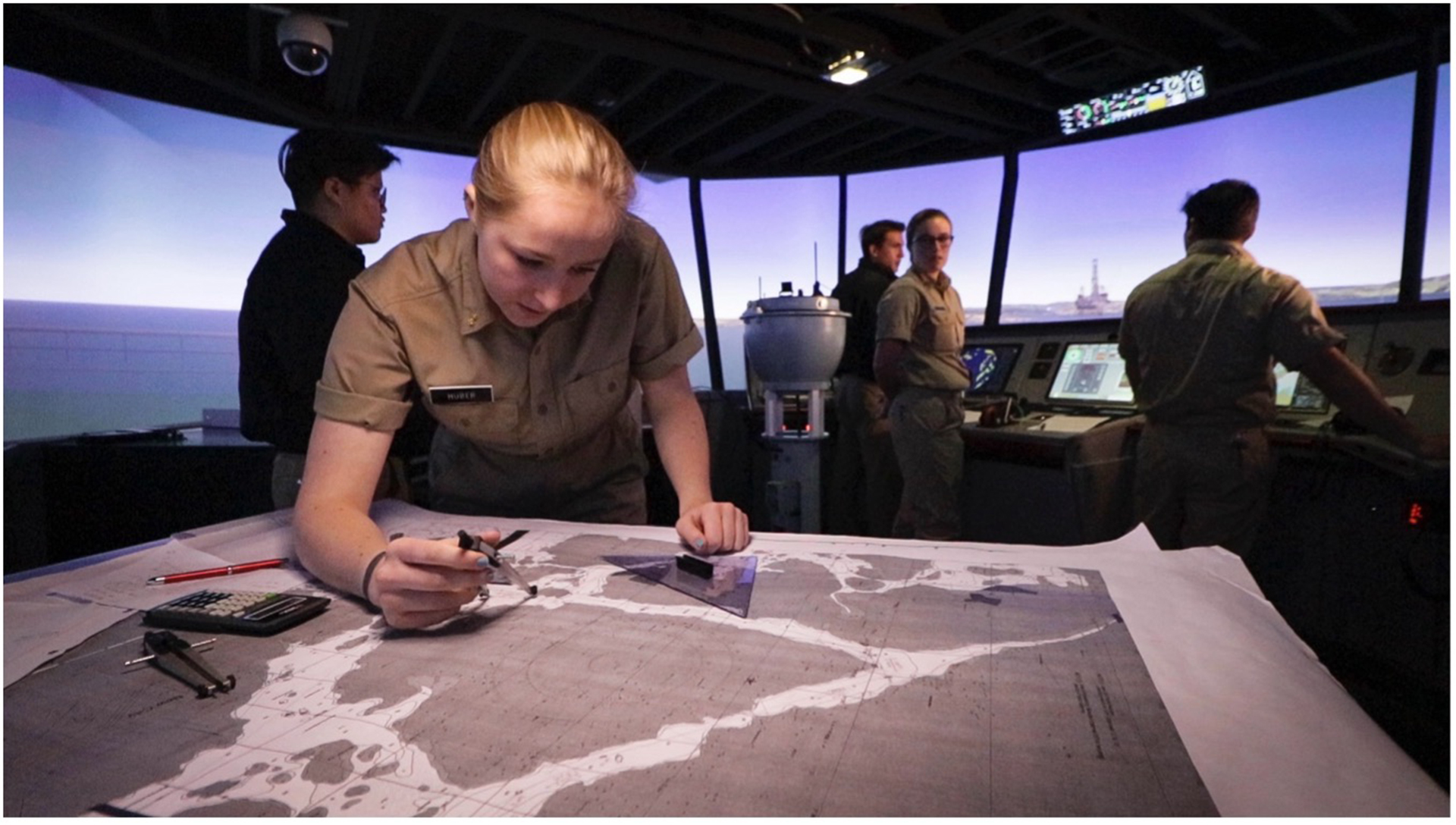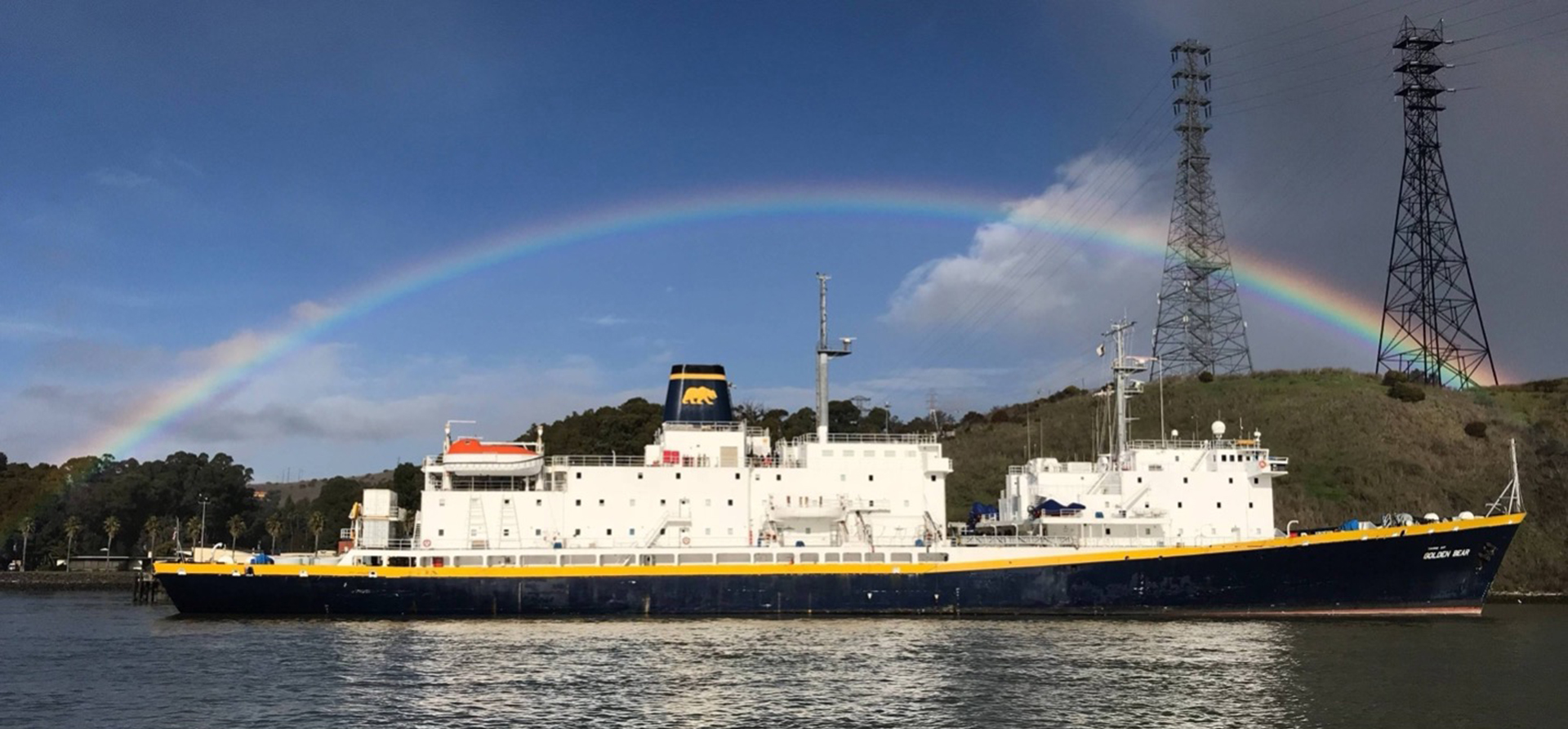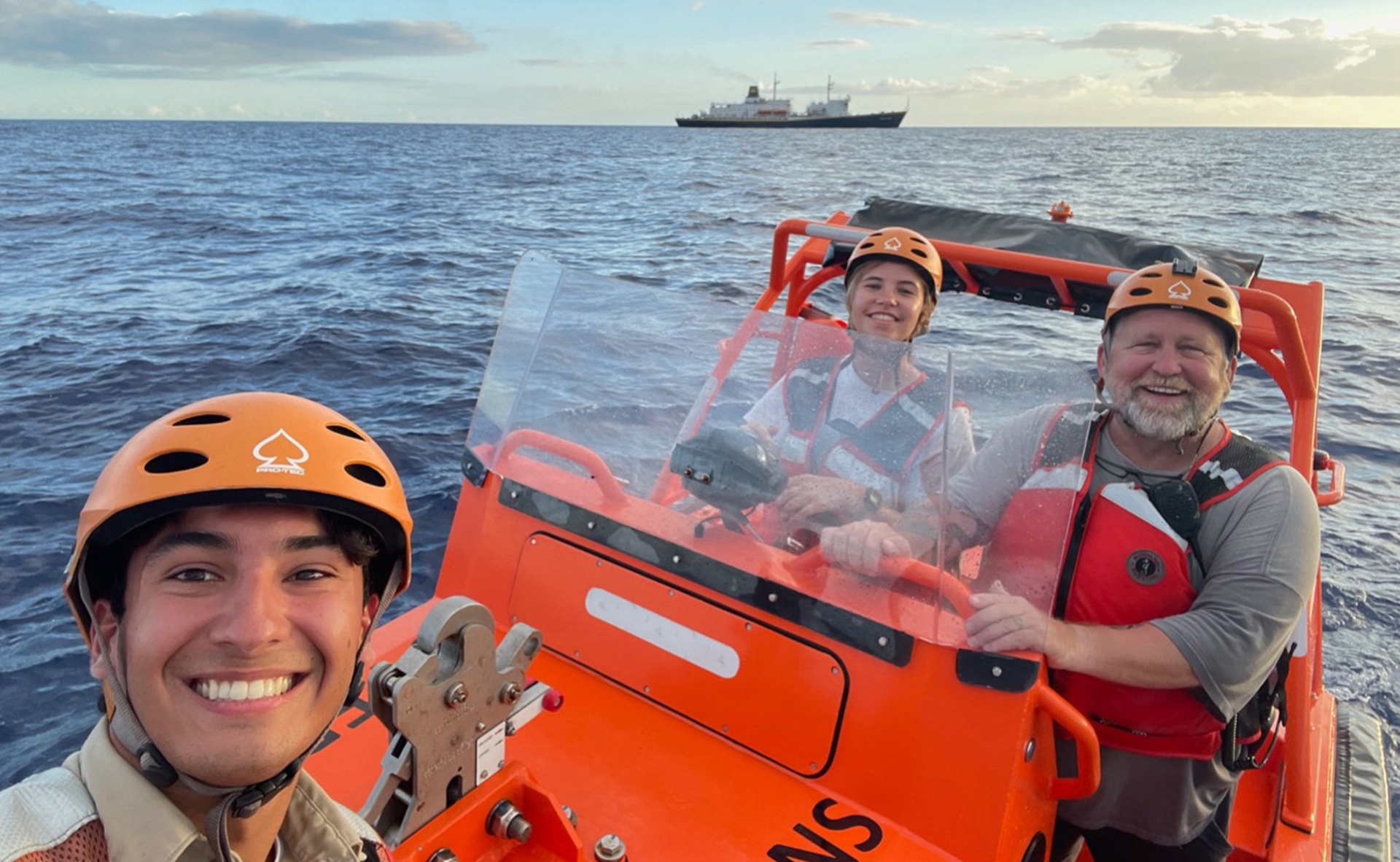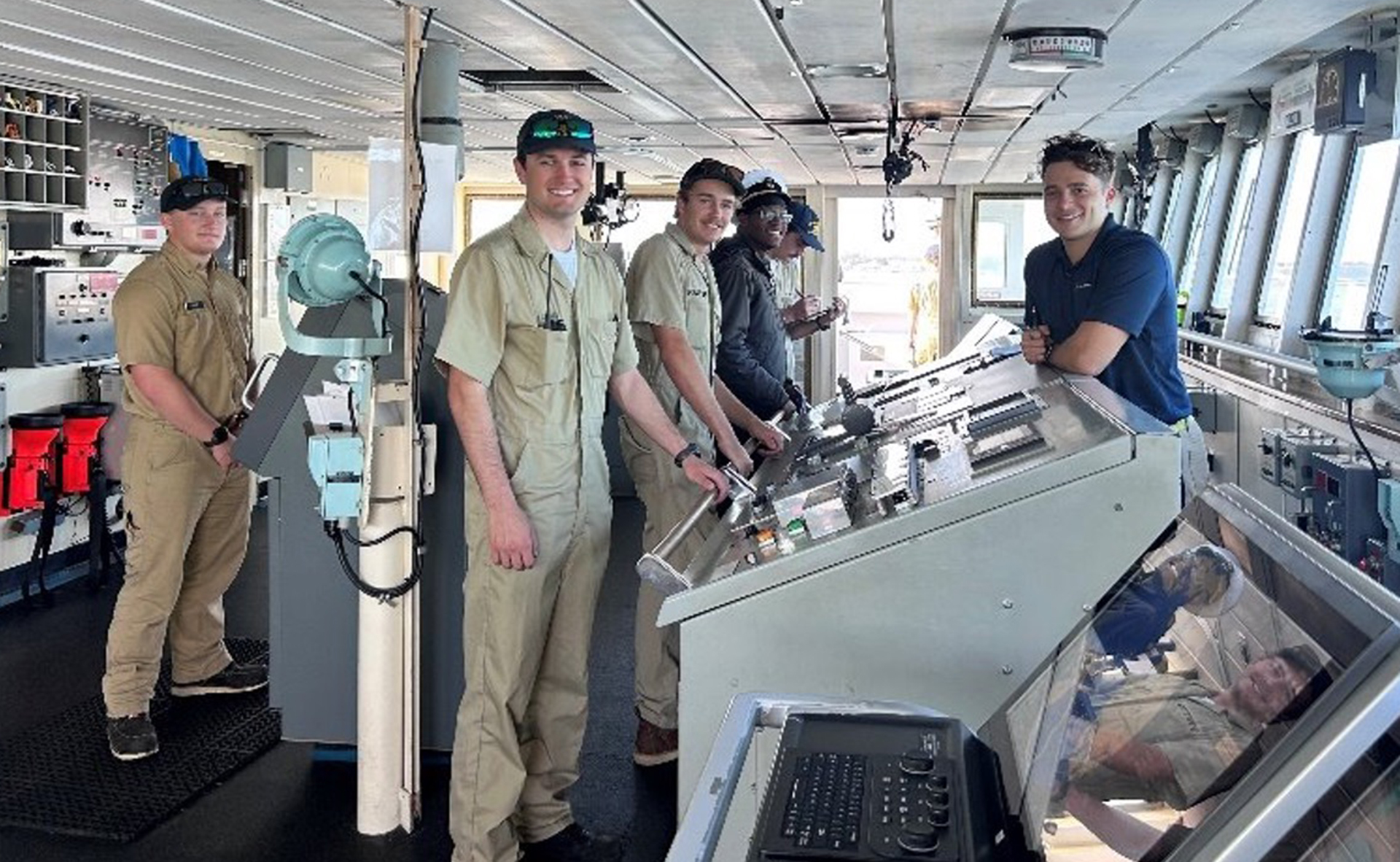All Hands On Deck

lntroducing the Department of Marine Transportation
BY ELIZABETH MCNIE, PROFESSOR AND CHAIR
The integration of Cal Poly and the Cal Poly Maritime Academy brings together two institutions that are built on a hands-on, immersive approach to learning. In preparation of the full academic integration occurring in fall 2026, the Department of Marine Transportation is being incorporated into the College of Agriculture, Food and Environmental Science’s offerings — creating opportunities for multidisciplinary collaboration.
 The Department of Marine Transportation is home to about 380 cadets pursuing a bachelor’s degree in marine transportation and a U.S. Coast Guard merchant marine officer’s license. Graduates sail on vessels of every type around the world, moving food, energy and essential goods that sustain communities and economies. You’ll find graduates on tankers, research vessels, tugboats and cruise ships among others.
The Department of Marine Transportation is home to about 380 cadets pursuing a bachelor’s degree in marine transportation and a U.S. Coast Guard merchant marine officer’s license. Graduates sail on vessels of every type around the world, moving food, energy and essential goods that sustain communities and economies. You’ll find graduates on tankers, research vessels, tugboats and cruise ships among others.
 The program blends rigorous theory with intensely applied practice — Cal Poly’s Learn by Doing in action. Cadets move from classroom instruction to labs, small-craft training, a full-mission bridge simulator and sea terms aboard the Training Ship Golden Bear. They plan voyages, stand watch, solve real navigational problems and practice decision-making under pressure. Along the way, they are assessed according to hundreds of rigorous standards for international certification.
The program blends rigorous theory with intensely applied practice — Cal Poly’s Learn by Doing in action. Cadets move from classroom instruction to labs, small-craft training, a full-mission bridge simulator and sea terms aboard the Training Ship Golden Bear. They plan voyages, stand watch, solve real navigational problems and practice decision-making under pressure. Along the way, they are assessed according to hundreds of rigorous standards for international certification.
 There is an emphasis on educating and training the whole person. Professional knowledge is paired with leadership, teamwork and communication skills essential to safe operations in complex, multicultural settings. Environmental stewardship, safety culture and ethical conduct are woven through the curriculum, reflecting shared values with Cal Poly’s College of Agriculture, Food and Environmental Sciences: Learning by Doing, serving society and preparing problem-solvers who care about their work.
There is an emphasis on educating and training the whole person. Professional knowledge is paired with leadership, teamwork and communication skills essential to safe operations in complex, multicultural settings. Environmental stewardship, safety culture and ethical conduct are woven through the curriculum, reflecting shared values with Cal Poly’s College of Agriculture, Food and Environmental Sciences: Learning by Doing, serving society and preparing problem-solvers who care about their work.
Maritime cadets are committed and passionate. They arrive early, stay late, study tide tables and weather charts and take pride in mastering both traditional seamanship and modern navigation technology. By graduation, they are ready to contribute on day one — on the bridge of a ship, in port operations or across the global transportation supply chain.
Visit Cultivate Fall 2025 to read more stories.